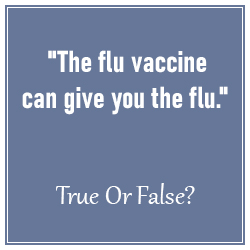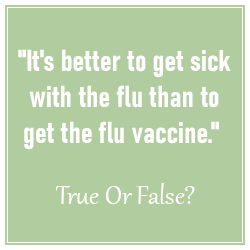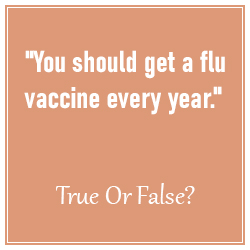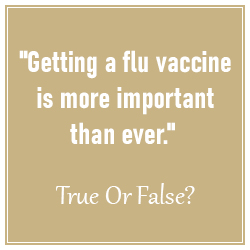How Can I Reduce My Risk for Flu this Year?
The Flu - Everyday Preventative Recommendations and Flu Shot Facts
When is Flu Season?
While generally considered to start in Fall and end in Winter. We're in November and heading into the peak flu activity period (December into February and sometimes March), but it's not too late to reduce your risk for the flu this year.
How can I Reduce My Risk for Flu this Year?
Everyday Preventative Recommendations from the CDC
- Avoid close contact with people who are sick
- If you are sick, avoid contact with other people - even if you have mild symptoms, someone could get sick and have a more severe reaction
- Cover your coughs and sneezes using a tissue - throw the tissue away afterwards
- Wash your hands often with soap and water for at least 20 seconds
- Avoid touching your eyes, nose, and mouth
- Clean and disinfect commonly used surfaces and objects
- Eating right, exercising, getting enough sleep, and managing your stress can all help too
Flu Shots - True or False?


- Adults 65 years or older
- Children younger than 5 years old, especially those younger than 2
- Pregnant women and women up to 2 weeks after pregnancy end
- People with certain chronic conditions like asthma, diabetes, or heart and lunch disease
Flu-related complications can range from sinus and ear infections to pneumonia or inflammation of the heart, brain, or muscle tissues. Flu-related illnesses result in hundreds of thousands of hospitalizations and tens of thousands of deaths every year. Anyone can get sick from the flu, and serious problems related to flu can happen at any age.

Everyone ages 6 months and older should get an annual flu shot. Our immune protection declines over time, and the vaccine is reviewed every year and updated as needed based on which influenza viruses are making people sick.

Getting the flu vaccine will not prevent Covid-19, but you can help reduce the burden of flu illnesses, hospitalizations, and deaths on the health care system. Getting a flu shot can help you protect yourself and others around you.
While the flu shot isn't a guarantee against the flu, it can help reduce your chances of getting the flu, especially when the previously mentioned preventative measures are followed.
Will My Insurance Cover the Flu Shot?
Will My Flu Shot be Covered if I'm Medicare?
What are the Main Flu Symptoms?
Flu usually comes on suddenly and symptoms often include:
- Body aches
- Chills
- Cough
- Fatigue
- Fever
- Headache
- Runny or stuffy nose
- Sore throat
- Upset stomach, vomiting, or diarrhea